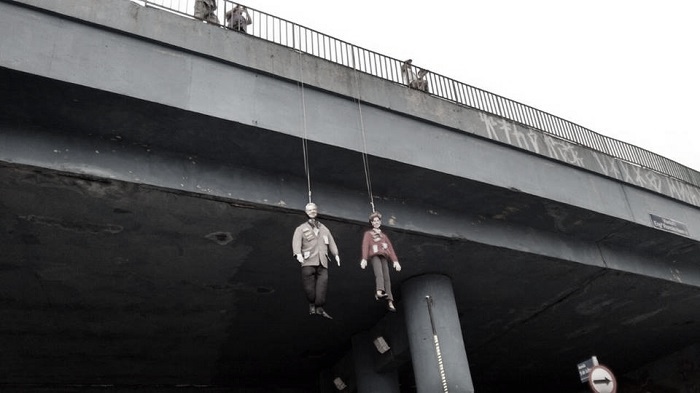That Brasil is currently involved in one of its most profound political and economic crises in recent history is no news to anyone paying attention to the country’s reports during the last few months. It is still not clear what will come out of the undergoing investigations involving corruption scandals across the political spectrum and government’s institutions, nor is it easy to predict whether the many street demonstrations of recent weeks, against and in support of the seating federal administration, will have any impact in the short-turn political scenario, positive or otherwise.
While some have defended loudly, at times aggressively, the removal of President Rousseff, even if by means of questionable legal maneuvering in Congress on the basis of unauthorized (though commonly used in all levels of government) expenditures; others have as vocally, though less antagonistically defended her permanence in power given the threat such an action would pose to the democratic process and institutions in the country.
What seems clear though is that regardless of what actually happens to Dilma’s democratically earned legal mandate, Brasil has already regressed significantly in its democratic path and much will have to be done so that the country can, once again, be seen as a beacon of hope in the region, as it was the case just about 4 years ago.
First, it should be emphasized that today’s challenges notwithstanding, Brasil’s civil society and organized social movements are still vibrant and actively working amidst a widespread crisis in the formal political system of representation. In fact, it is probably due to the mobilization of many grass-roots organizations, including through social media that some of the most over attacks against minority groups and worker’s rights have been stalled in Congress.
Yet, it is hard to deny the fact that public discourse and behaviors of many individuals and groups have progressively manifested concerning trends and elements resembling fascist-like attitudes of trying to eliminate from the public arena different political positions and views. The recent case of the pediatrician who denied treatment to a baby whose mother is a member of the ruling Workers Party seems to be just one of the clearest examples of the culmination of this process of heightened political polarization threatening the democratic process.
That this could happen with a small child by the actions of a highly trained and educated professional in an area of activity where political positions should not matter to the performance of that professional task is deeply concerning and begs a profound reflection. Making matters worse, the president of medical doctors’ association in the region where the pediatrician works came out in public defending the doctor’s conduct by stating that she ‘should be proud of herself.’
How could Brasil get to this point? How could a country that not only prides itself on being a cordial, civil and democratic society (though formal institutions of democracy usually fall short of that promise to most less-privileged Brazilians), but also where the current democratic regime was erected after years of brutal authoritarian rule in the 1960s, 70s, and early 80s? When and how did it become acceptable to conduct oneself in public in ways that contradict the minimal requirements of respectful co-existence and ethical professional conduct?
In addition to much-needed more profound sociological studies on the nature of the actual Brazilian so-called democratic sociability, as well as qualified institutional studies on the nature of Brasil’s transition to democracy; it seems clear that the accelerated deterioration of the country’s civilian discourse is tied to the corrosion of the very representative political institutions in the country.
Brasil emerged in the last Congressional election in 2014 with its most conservative political composition since the coup of 1964 and the ideological nature of this legislative body has to be qualified. In fact, in addition to its clear neo-liberal (pro-market and big business) economic positions, the ruling coalition in the Brazilian parliament also holds retrograde views on many social issues, ranging from minority rights to the very status of the secular State in the country. Moreover, key members in the Brazilian Congress, beginning with the Speaker of House, Dep. Eduardo Cunha, are proven corrupt, even criminal figures that nonetheless continue to reign free and control the institution where they continue to advance their own, backward, anti-democratic political agendas.
Much in the same way, in what is getting confirmed by recent judicial reviewing decisions coming of the Brazilian Superior Federal Court (STF), much of the judicial investigations of corruption have been conducted by judges who hold clear political sympathies with the opposition and who have also resorted to questionable, coercive, at time illegal, means to obtain information against the ruling Workers Party. Thus buttressed and, in the their views, legitimated to act more forcefully against a weakened government, the opposition has increasingly also resorted to highly questionable, also at times illegal, acts to forcefully push out of power the seating president and destroy the still influential figure of former president Lula.
Since they originate in key powerful official institutions of the Brazilian state, these set of actions and associated discourses seem to make the case that what should be unacceptable sets of behaviors are no longer reproached but rather have become the approved, perhaps even the best way to act to foster one’s political goals. In doing so, Brazilians are diminishing the standing and procedures of its still vibrant democracy, and the very basis of the regime, i.e. the acceptance of civil discourse and sociability seem to be weakening. One can only hope that this course can be reserved before it indeed becomes a feature of country’s polity that pursuing violent courses of actions are seen by many as the way to go.
[qpp]

